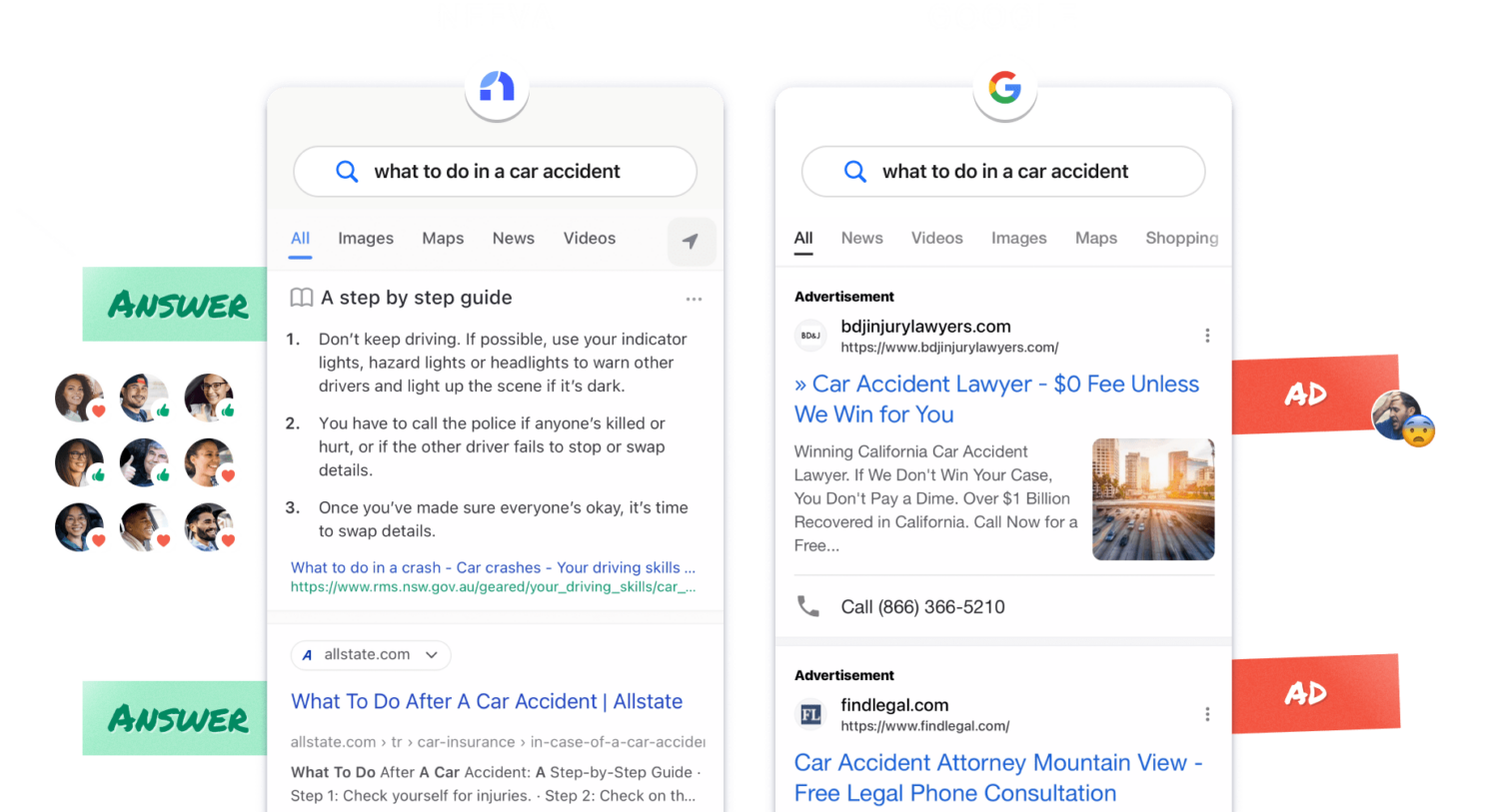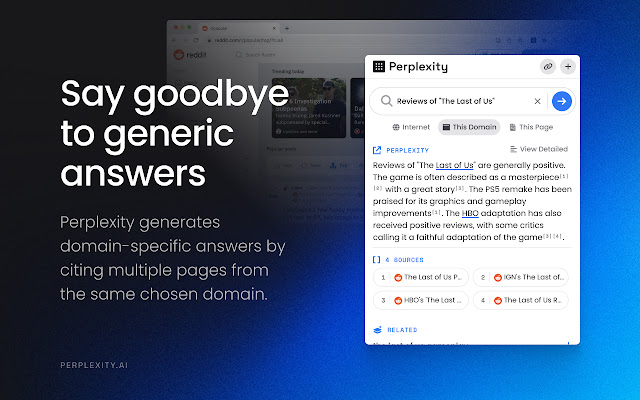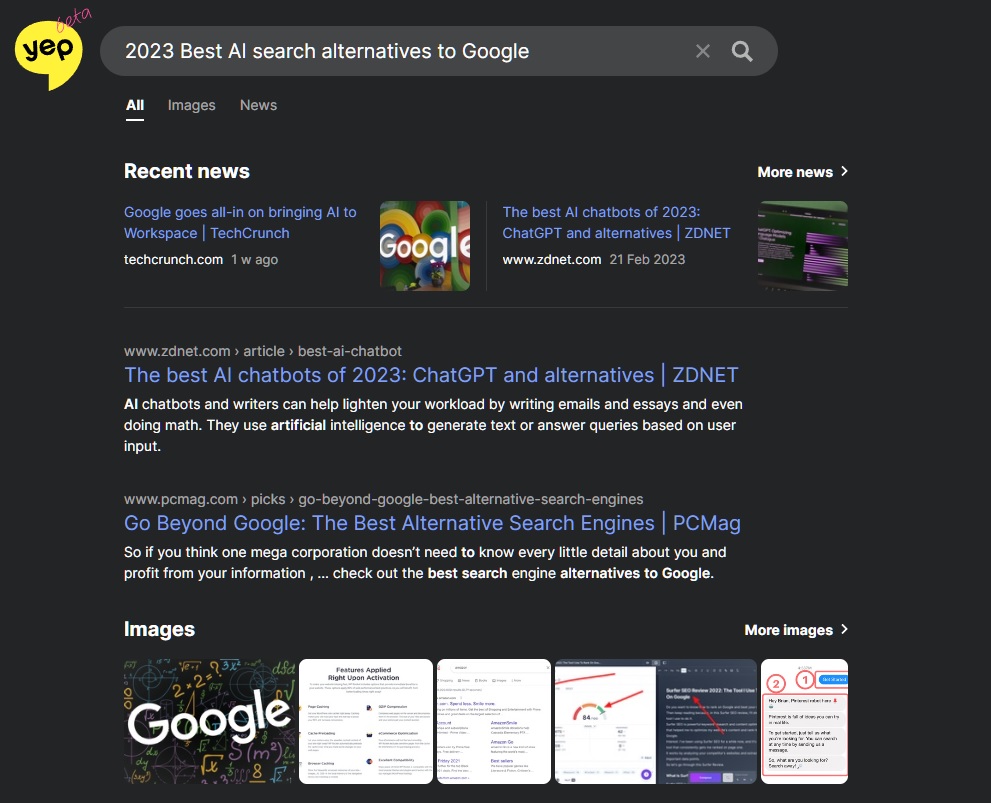
Search engines powered by AI have gained so much prominence in recent times. With this surge also comes the potential promise and the perils of losing too much too soon of human research and fact-finding skills.
In the past, individuals scoured through volumes of text to gain expertise on a particular subject. But now, even a non-specialist can use AI tools to create remarkable pieces of art that would go unnoticed unless chaffed out by AI-detection software.
With smart devices becoming a mainstay, search queries and their results generated have become more conversational. However, in exchange for free search results, we surrender our privacy enabling search engine providers to monetize our searches, preferences, and location data.
A key differentiator exists when analyzing between a Google search and an AI-based search. An AI search produces more relevant results by taking into factors such as the user’s browsing history and the search intent to generate exactly what they are looking for.
And as the AI system constantly learns from the data it collects, it continues to refine results in the background as the user searches, taking into account past purchases, spelling errors, and even the intent behind the query. All of this happens automatically without manual intervention.
AI Search Benefits Over Google Search

When it comes to choosing an AI-powered search engine over a regular search engine, here are two things that will help you cement your decision. AI search engines’ standout features are the incorporation of technologies like Natural Language Processing (NLP) and Machine Learning (ML). This gives AI search engines a distinct advantage over conventional ones as Google search engines.
Despite the widespread use of AI in streamlining various industries, it is the integration of NLP and ML technologies that truly sets AI-based search engines apart from the rest. NLP allows AI search engines to better comprehend and interpret human language, while ML allows the processing of massive amounts of data to generate highly accurate predictions.
Within the realm of AI, NLP can be integrated into AI search to obtain the following use cases:
- Speech recognition, converting spoken words to text and vice versa.
- Segmenting previously captured speech into individual words, sentences, and phrases.
- Recognizing different forms of words and grammatical structure within sentences.
- Extracting the meaning of phrases, including adjective phrases, prepositional phrases, and nominal phrases.
- Understanding the context of sentences and the relationship between sentences.
- Conducting linguistic text analysis, sentiment analysis, and translations to empower voice assistants and chatbots.
Features of Machine Learning in AI-based search engines:

- Supervised learning: The system is trained with data sets with a wide array of possible variables connected to known positive or negative results. The model is made to understand how to recognize and weigh in factors based on past data to produce a positive result.
- Reward System: Once the system is conditioned with the data sets, it is fed new data without the known positive or negative result. When it selects correctly, it is given a reward and is added to its scoring system each time it selects the right answer.
- Integration: Once the success metrics are high enough to surpass existing systems or in meeting thresholds, the machine learning system is integrated into the algorithms.
Here are the latest AI-based search alternatives to Google Search.
Komo
Komo Search is an AI-powered search engine that prioritizes speed, privacy, and ad-free browsing.
The search engine offers three key features: Chat, Explore, and Search. Chat allows users to delve into idea generation and participate in topic discussions, while Explore keeps users informed about trending topics within the community. The Search feature is particularly noteworthy for its quick and effective responses to queries, offering relevant links and resources.
Komo Search enables users to explore their interests and find answers in an engaging, private, and efficient way.
Neeva
Neeva Search enables you to search safely and privately using Chrome extension and also as Mobile app.

With Neeva, you can search straight from your browser’s address bar and access genuine and unbiased search results. Neeva keeps your search history private, shields your online activities from thousands of trackers used by advertisers, and offers Free Basic and Premium plans, so you can customize your search engine to receive the most relevant results.
By utilizing Neeva, you can browse confidently as it shows authentic results and chats from your preferred forums while preventing third-party trackers from tracking.
You.com
You.com is a new search engine that gives people control over their searches, their time, and their privacy.

You.com combines users’ preferences with artificial intelligence and natural language processing, letting people take back control over their information consumption without being influenced by big ad tech firms. It is also flexible in that developers can create apps to run within the results pages.
The brains behind You.com are Richard Socher, former Chief Scientist at Salesforce and a top researcher in natural language processing, and Bryan McCann, who led natural language processing teams at Salesforce. The company has backing from AI-focused VC fund Radical Ventures, as well as Marc Benioff and Jim Breyer, Day One Ventures, and other investors.
Waldo
Waldo takes inspiration from the widely popular “Where’s Waldo” game, and uses search indexes obtained from search engines like Google and Bing. However, it differentiates itself by providing a distinctive interface to allow users fine-tune their searches with just a few clicks.

With Waldo, you can effortlessly pick the file type you want, highlight specific numerical values with percentage signs, and identify quotes in mere seconds. Waldo has been praised by customers for reducing search times by half.
Waldo revolutionizes the search landing page by turning it into a customizable interface, enabling users to have greater control over their search results without having to open several tabs.
Moreover, Waldo includes a built-in notepad to facilitate note-taking that can then be transformed into a complete presentation or exported to Google Docs. In short, Waldo enhances the efficiency and effectiveness of search processes, making them smoother and more streamlined for users.
Perplexity
Perplexity AI is a cutting-edge search engine tool that utilizes sophisticated artificial intelligence technologies, including OpenAI’s GPT-3 model, to offer direct answers to queries in the form of summaries and citations as search results.

This is a significant deviation from traditional search engines that offer a simple list of links and allows users to access information quickly and effortlessly without having to sift through irrelevant results or navigate through multiple pages. In this regard, Perplexity AI is akin to the Google PageRank algorithm, which employs citations to evaluate the quality and relevance of a webpage.
Perplexity AI is free of intrusive advertisements and does not require a sign-up or login. Additionally, it is a secure and private means of search as it does not collect any personal information.
Andi
By harnessing the power of language models, Andi can better understand users’ search queries and predict the most relevant sources of information, all in real-time. This approach sets Andi apart from traditional search engines that rely on static keyword indexes.
Andi’s approach to search is similar to how humans think, with language models complemented by reasoning and common sense.

Andi’s user interface is a refreshing change from the standard search engine layout. The engine summarizes and explains complex information gathered from the best sources and displays search results alongside each answer in a visually appealing feed.
Andi’s “Read,” “Summarize,” and “Explain” features allow users to view articles in a clean, ad-free format, save time by getting to the point, and understand complex pages with ease.
Yep
Yep, the latest search engine that rewards and compensates content creators is the brainchild of Dmytro Gerasymenko and his team at Ahrefs. Ahrefs, known for its leading SEO toolset, runs an internet-scale bot that has been crawling the entire web since 2010, storing, indexing, and structuring petabytes of information.

Yep’s search result pages (SERPs) boast of minimalism. Users can choose between web or news results. Moreover, there are “knowledge” boxes on the right side of some SERPs, which showcase content pulled from Wikipedia about your search.
With Yep, the team rewards and compensates the content creators using a 90/10 revenue share business model where 90% of advertising revenue goes directly to these creators. In other words, by using Yep, users can directly put money in the pockets of their favorite content creators.
Microsoft Bing
Bing developed by Microsoft, boasts a suite of AI-powered features that empower users to ask intricate questions and receive detailed answers. To accomplish this, Bing combs through search results across the web to present comprehensive answers to user inquiries.
Bing’s chat experience enables users to refine their search until they obtain the complete answer they seek. By requesting more details, clarity, and ideas, users can interact with the search engine in a more intuitive and natural way.
The new version of Bing operates on a next-generation OpenAI large language model, specifically customized for search. This new model is more powerful than ChatGPT, enabling users to find the information they need more quickly and easily.
Conclusion
As we wrap up this piece on the top AI search alternatives to Google, here are a few takeaways worth taking note of.
There have not been many revolutionary breakthroughs or significant innovations in search engines in the past two decades. While the algorithms have improved, the experience has remained relatively stagnant.
One can argue that it even worsened with the bombardment of ads. The search experience has been suboptimal, serving up links rather than direct answers, which becomes inefficient over time for non-shopping use cases.
Startups face a daunting challenge, but times of technological metamorphosis often bring about significant changes in industry leaders. We have seen this happen time and again with Altavista, Ask.com, Yahoo, and other search engines before Google’s emergence. As we witness the influence of AI across all sectors, so will the search market witness a major shift in how we view search.
You may also explore how to use ChatGPT-4 in arts, science, finance, etc.
